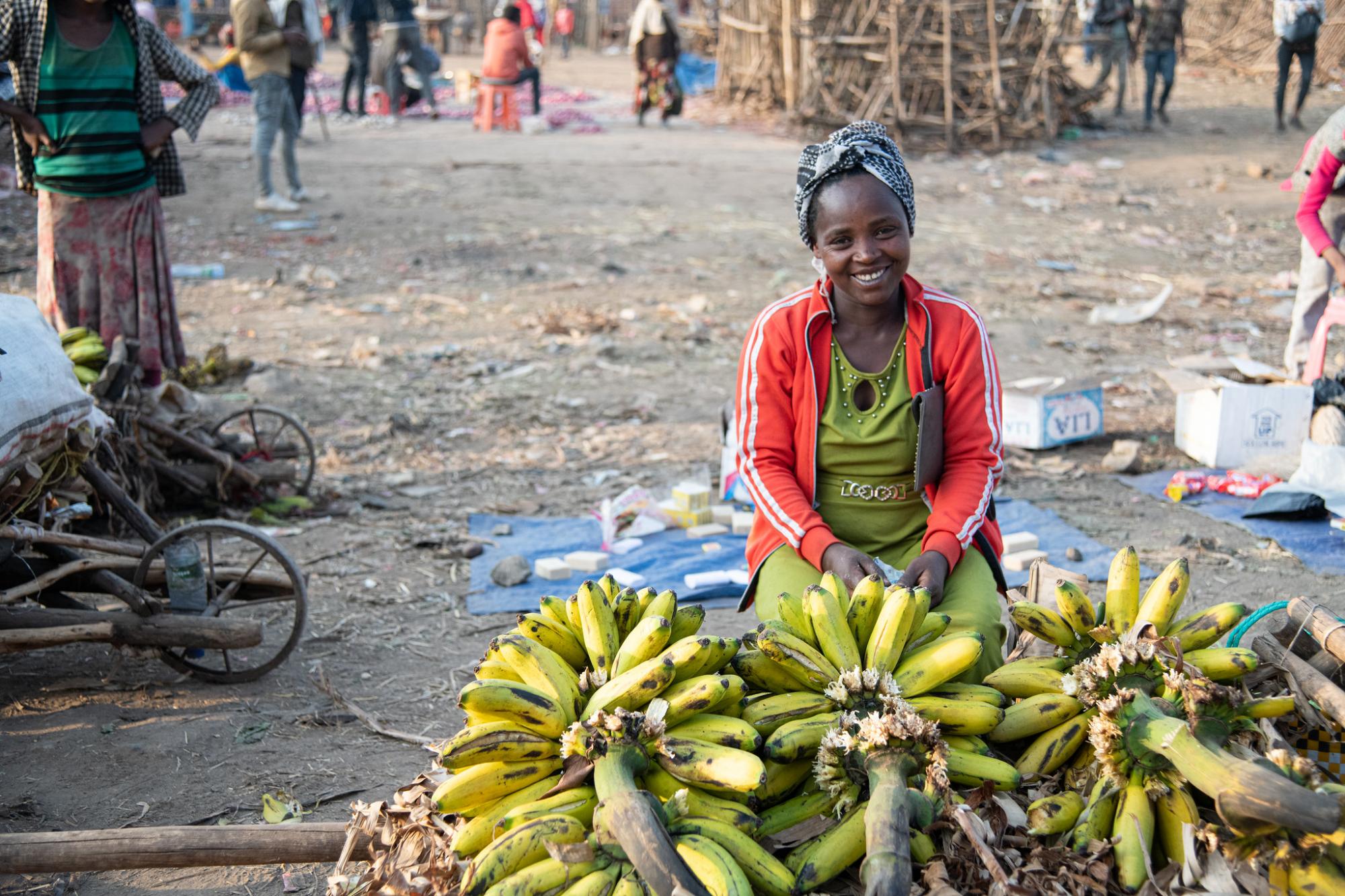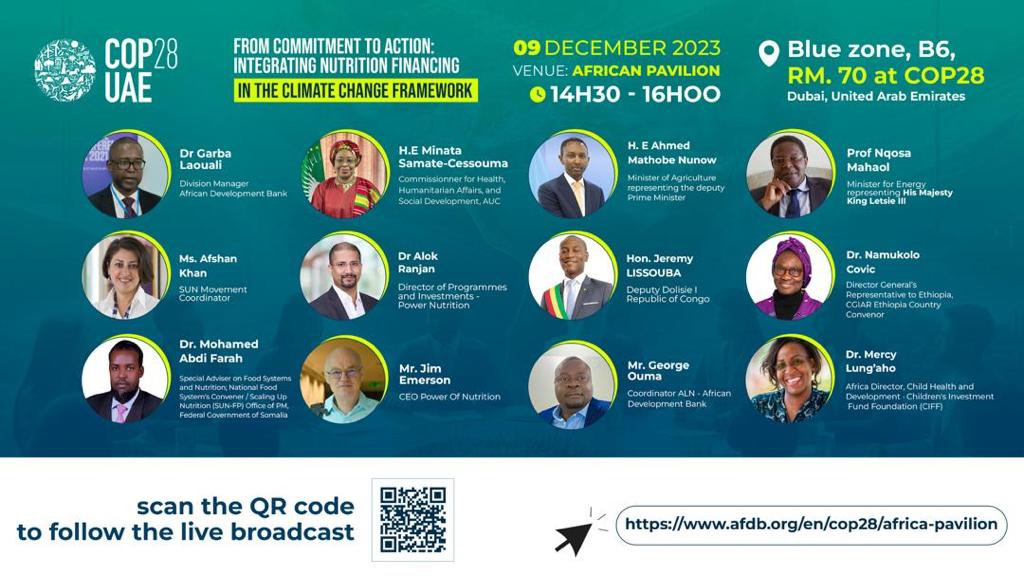
From commitment to action: Integrating nutrition financing in the climate change framework – 9 Dec
Core message
Climate change is a significant driver of nutrition issues, affecting food systems, availability, access, and quality. Over 2 billion people face micronutrient deficiency, 828 million are undernourished, and 676 million suffer from obesity. Integrating nutrition concerns into climate change financing will be critical to achieve global health and development goals. Yet only 3% of Green Climate Funds target nutrition interventions.
This high-level event focused on the importance of incorporating nutrition concerns into the climate finance framework, with speakers providing recommendations.
The event was held in collaboration with the federal government of Somalia, the African Union Commission, the African Union Nutrition Champions Program, and the African Development Bank, and the African Leaders for Nutrition Initiative of the African Development Bank.

Key takeaways
- Garba Laouali: The African Development Bank has announced initiatives to mobilize climate finance for adaptation and mitigation in Africa and emphasizes political discourse's role in shaping climate-friendly policies.
“Let us all join hands and rally political and financial commitment at all levels to address climate and malnutrition and food security in Africa.”
- Minata Samate-Cessouma: We need a comprehensive approach involving governments, societies, civil society, and the private sector, and which highlights the interconnectedness of climate change with health and economic well-being. We need an innovative funding mechanism sensitive to climate change, which emphasizes the importance of research and knowledge transfer for reducing hunger. Women and girls need special attention.
- Ahmed Mathobe Nunow: The climate change-malnutrition crisis is pronounced in countries like Somalia, hindering progress toward Sustainable Development Goals. The Federal Government of Somalia is committed to addressing the crisis, but the grim reality includes acute food insecurity, rising malnutrition, conflict, and inadequate humanitarian assistance. We need global collaboration to achieve a sustainable, efficient, and inclusive future.
- Nqosa Mahaol: Climate change threatens vital global food crops. The African Union today presents a position paper position paper advocates comprehensive strategies and recommendations for nutrition-sensitive investments and collaboration. The objective is to mobilize stakeholders, making climate finance a catalyst for positive change, in alignment with Agenda 2063 for a healthy, sustainable, and equitable future.
- Afshan Khan: Africa has firsthand experience of climate change impacts. We need increased global investment, particularly from the Green Climate Fund, and a comprehensive financing approach involving various stakeholders. Domestic budgets are only one part of the solution. Women, girls, and children specifically need unified efforts for climate-smart and nutrition-sensitive interventions. Look to the SUN movement for examples of national led and developed nutrition plans, and to the African Leaders for Nutrition (ALN) paper for solutions and regulatory environment recommendations.
- Mohamed Abdi Farah: African leaders must unify to communicate the reality of climate change as a continental issue. The African Union is positioned as the lead agency to voice Africa's concerns, negotiate for more funds, advocate for mitigation measures, and emphasize that addressing climate change is a global responsibility. Africa should not be left alone to deal with the consequences of a problem it did not primarily contribute to.
- Jeremy Lissouba: Parliamentarians play a crucial role in addressing the lack of nutrition consideration in climate finance. They should work towards breaking down silos within governments, advocate for initiatives with systemic potential such as school feeding programs and green classes, invest in data systems, strengthen agricultural advisory services with a nutrition component, and make domestic resources work efficiently.
- Namukolo Covic: Existing initiatives, such as the existing UN Food Systems Summit Transformation Pathways in 42 African countries, present a specific entry point for investment. We should synthesize existing evidence to enhance resilience and tailor interventions to specific contexts. We can create demand through public procurement and incorporate food-based dietary guidelines, without simply waiting for future solutions.
“As others have said we have borne the brunt of the climate crisis. And it's not like governments have just been sitting there watching. People are trying to put in place interventions here, interventions there. Those are the investments that we can do tomorrow, already.”
Looking forward
Speakers called to look to the African Union position paper for recommendations, support initiatives like ACRIFA and position the African Union as the lead agency for climate-related negotiations and funds, align actions with Agenda 2063, pay special attention to the needs of women and girls, address acute food insecurity in Somalia with global collaboration, emphasize research and skill strengthening focused on reducing hunger, foster a supportive regulatory environment, advocate for focus not just on the environmental impact of climate change but its broader consequences on life, malnutrition, economic growth and development, break down silos within governments, rally political and financial commitment at all levels, call for more investment including from the Green Climate Fund, and act promptly, leveraging current initiatives.